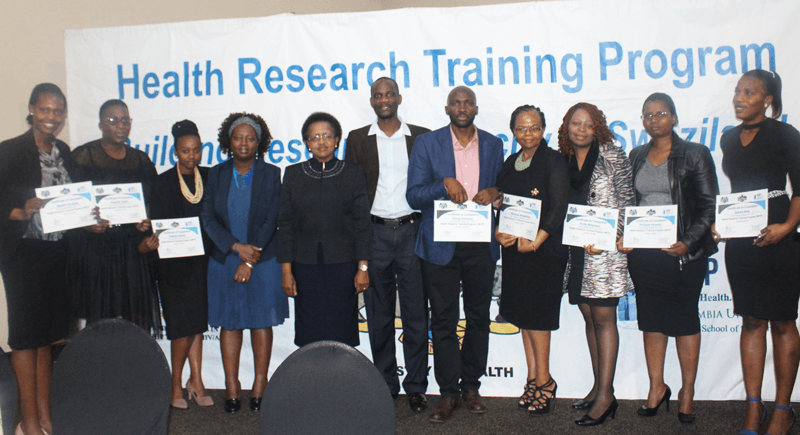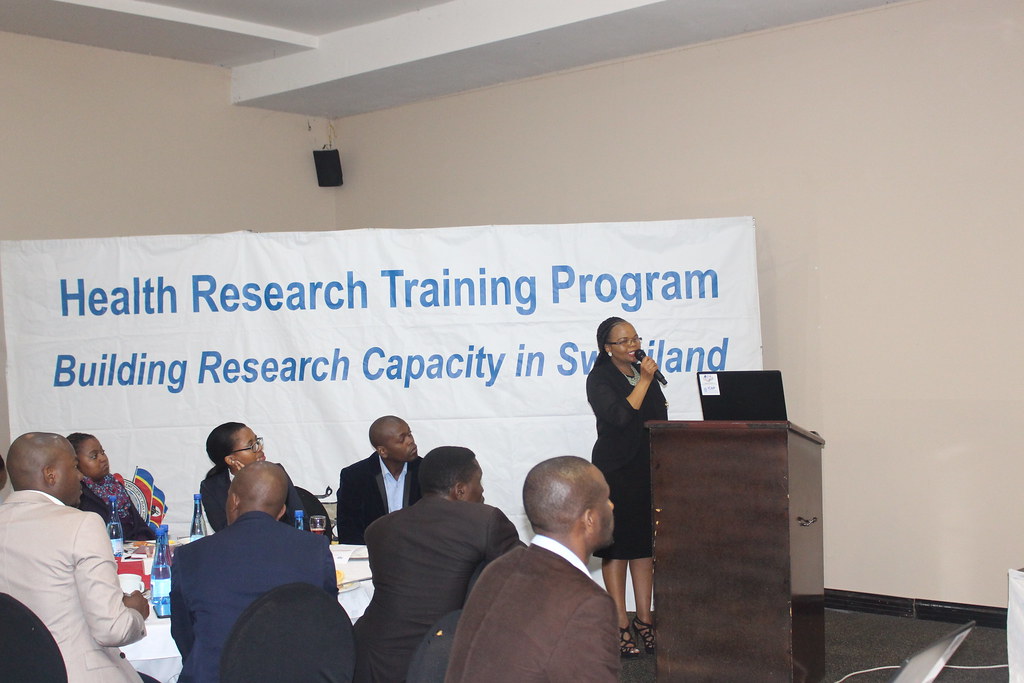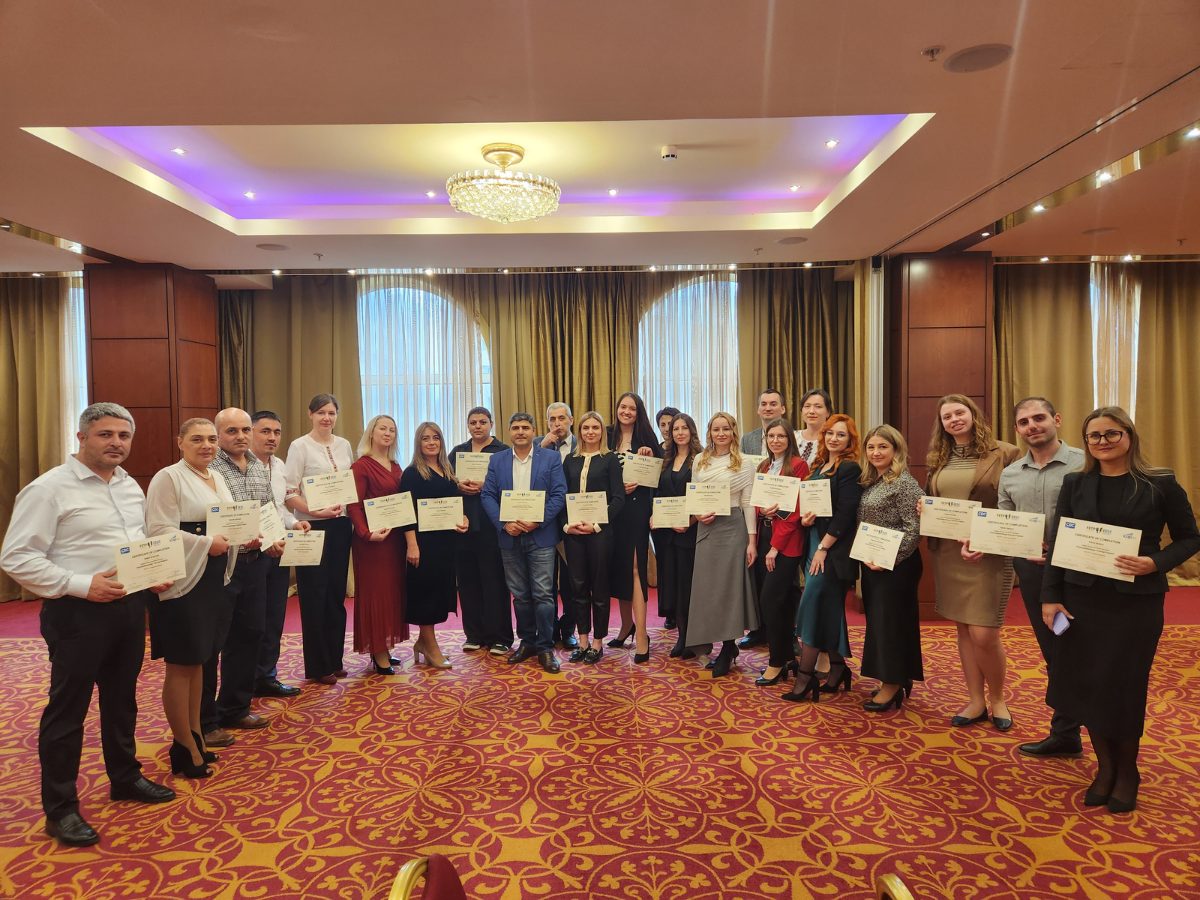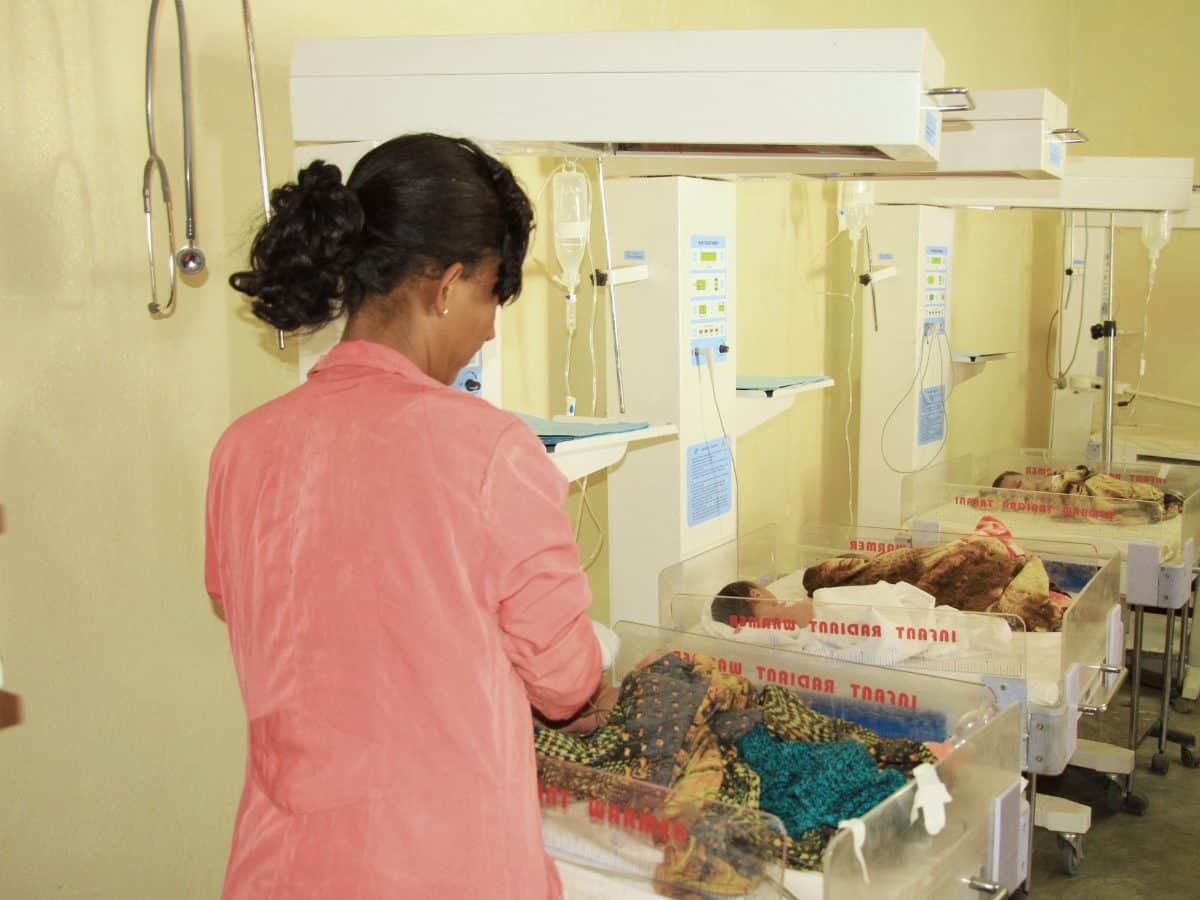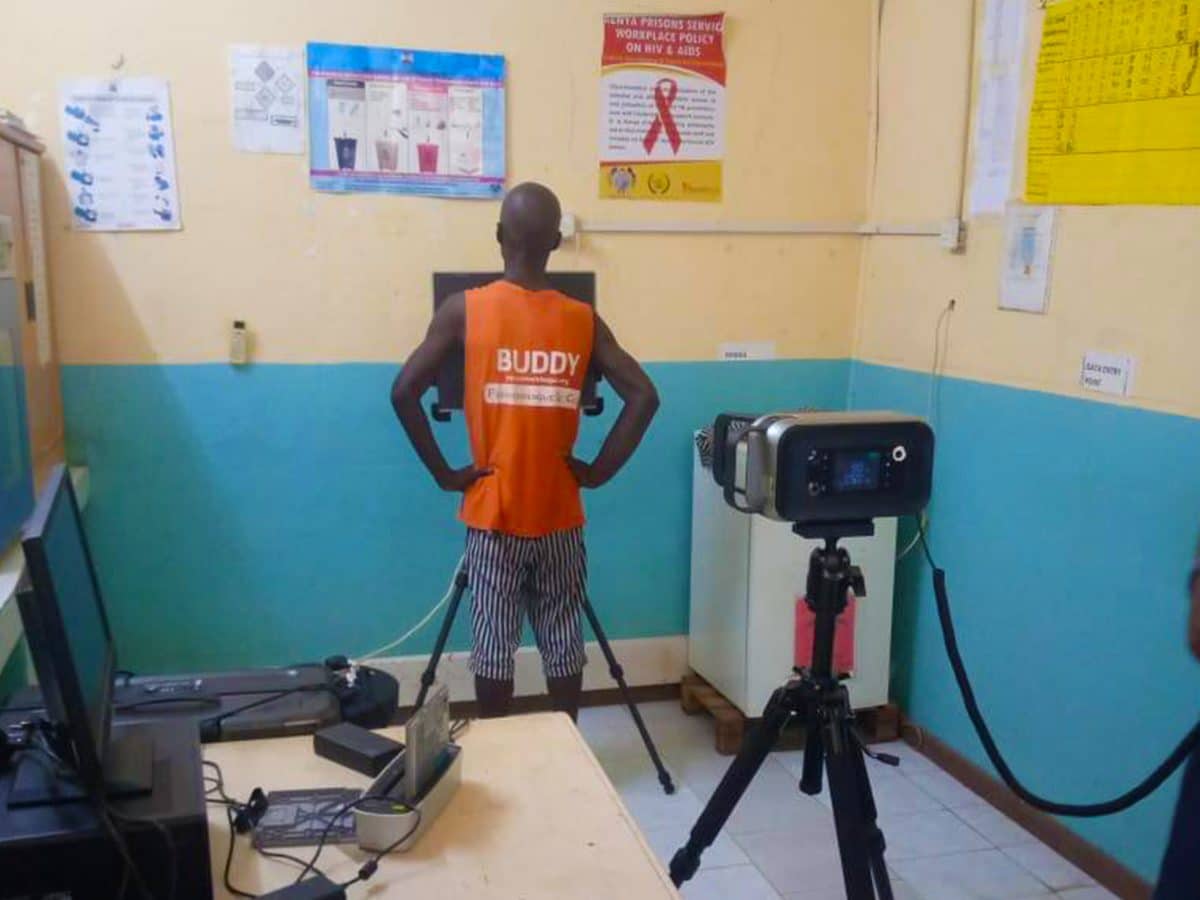Ten public health professionals have begun their year-long fellowships in the Swaziland Health Research Training Program (HRTP) following a celebration event on August 31, which was attended by representatives from the Swaziland Ministry of Health, the U.S. State Department, the U.S. Centers for Disease Control and Prevention (CDC), and ICAP. The event also recognized eight graduating fellows, who successfully completed the modular training and research assignments for projects that will contribute to knowledge and practice around HIV prevention and care.
“The Ministry of Health is very pleased that the goals of this professional development platform for young researchers are being realized and for the success achieved thus far,” wrote the Honorable Sibongile Ndlela-Simelane, minister of health for Swaziland, in a special message for the event.
HRTP is in its fifth year, having launched in 2013 with support from CDC through the U.S. President’s Emergency Plan for AIDS Relief (PEPFAR). Fellows are competitively selected by a Ministry of Health-led Advisory Board from a pool of applicants who are employed at government and educational institutions and wish to gain skills that will aid them in independently conducting and publishing research. Fellows are purposely selected from diverse backgrounds, as a way to strengthen key components of the health systems and workforce.
“ICAP is committed to helping build a stronger health systems workforce in Swaziland, and these outstanding professionals are driving progress toward realizing that promise,” said Dr. Harriet Nuwagaba-Biribonwoha, research director for ICAP in Swaziland and principal investigator of the CDC/PEPFAR health systems strengthening award that supports HRTP.
The HRTP training curriculum includes skills training in the areas of protocol development, research implementation and monitoring, good clinical practice, data analysis, and scientific writing. Fellows also work with mentors on individual projects, to benefit from mentors’ significant experience in research methods and implementation. Notably, 2017 marks the first year when fellows will analyze data from the recently concluded Swaziland HIV incidence measurement survey (SHIMS 2016).
“These brand new data are rich with information on multiple secondary objectives about HIV, TB, infant and maternal health, food and water security, and many other topics. The fellows’ analysis of these data will help ensure pertinent and in-depth data are used for policy decisions,” said Dr. Ruben Sahabo, country director of ICAP in Swaziland, at the event.
We congratulate the graduates of Cohort 4: Phumzile Mndzebele, Phephile Sukati, Philisiwe Khumalo, Phinda Khumalo, Portia Makgolane, Sizakele Dlamini, Siphiwe Shongwe, and Zandile Bhila.
ICAP welcomes the new fellows of Cohort 5: Bongani Masango, Cebsile Ngcampalala, Jennifer Gama, Mandzisi Mkhontfo, Mfundi Motsa, Nompumelelo Mzizi, Ntombifuthi Ginindza, Rumbidzai Ndungwani, Sanele Masuku, Sipho Makhubu.
Sincere appreciation goes to the HRTP Mentorship Team: Tony Ao (CDC/PEPFAR), Charles Maibvise (UNISWA), Mduduzi Shongwe (UNISWA), Pasipamire Munyaradzi (SNAP), Joyce Sibanda (MoH), Maswati Simelani (NTCP), Nontobeko Dlamini (ICAP), Thulani Maphosa (ICAP), Harriet Nuwagaba-Biribonwoha (ICAP), Sabelo Dlamini (Consultant), Nokuthula Kuhlase (URC), Londiwe Hlophe (UNISWA), and Muyabala Munachitombwe-Muna (Consultant).
ICAP has partnered with the Government of the Kingdom of Swaziland since 2005 to build capacity in epidemiology and research and to strengthen the monitoring and use of data to inform policy and programming. The HTRP is part of a larger effort that includes support for epidemiology, surveillance, and research ethics, as well as the Swaziland HIV Incidence Measurement Surveys, which is part of the global Population-based HIV Impact Assessment (PHIA) program active in 14 countries.
Read more about ICAP’s programs in Swaziland here.


